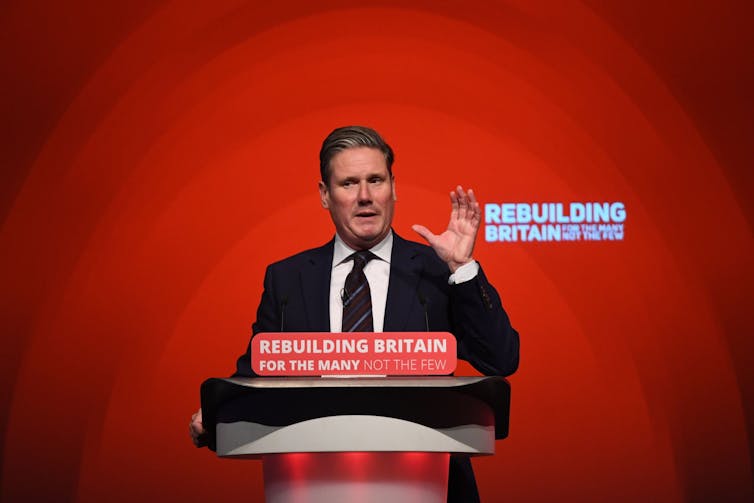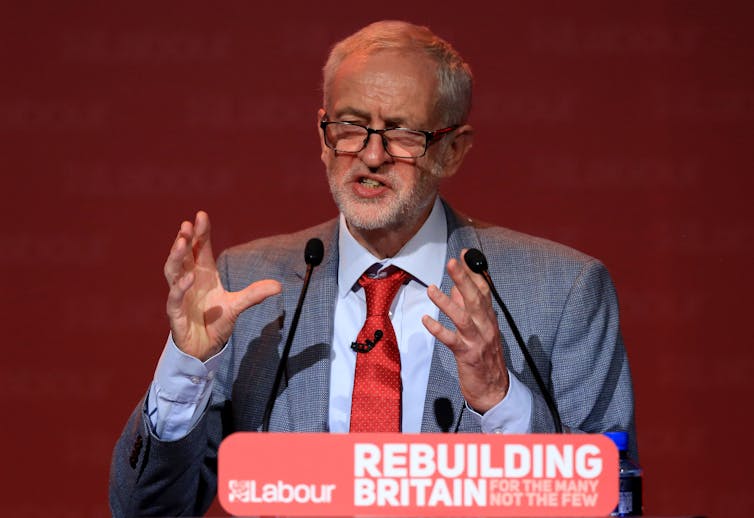
Delegates then went on to vote overwhelmingly in favour of the motion, giving the leadership the signal that they wish to keep “all options remaining on the table including a public vote”.
Let’s not underestimate just how important these discussions are. If the Labour Party finishes this week openly and unitedly committed to a second referendum, and to the option to remain, then the debate of the last two-and-half years has shifted beyond recognition. And if it does manage to reach this position – not by any stretch of the imagination a done deal as yet, despite the conference vote – then it would have done so with considerable political skill.
This time in 2017, as Labour held its conference in Brighton, I wrote that its dual focus on the radical changes needed in the economy alongside its commitment to deliver on Brexit – thereby respecting the result of the referendum – could come to be seen as a skillful political endgame by the Labour Party. All it needed to do was to stand back and let the government continue to mishandle Brexit, and then step in as the adults in the room when necessary.
Skip forward 12 months and we can see that this claim may well be being borne out before our eyes. The Conservative Party, led by the tin ear of Theresa May, has made a mess of Brexit on every front, not just with the negotiators of the EU, but also with every possible domestic group (including of course the members of their own party). The Labour Party, meanwhile, has stayed out of the fray and kept focus on the things it promised in its 2017 election manifesto.
Indeed, it is remarkable that, as a nation suffered a paroxysm over Brexit, as Brexit swallowed every waking minute of this government’s agenda, and also swallowed almost all column inches, that Labour has kept these other policy ideas on the agenda. It has steadfastly stuck to the narrative of redistribution, of building a society for the many and not the few. Even alongside its lamentable handling of the antisemitism debacle, it has shown an impressive and dogged commitment to its vision of society.
However, the most skillful element of the past 12 months of Labour leadership may well be what has unfolded at the 2018 conference – a party leadership that has promised for two years to respect the democratic will of the people as expressed in the EU referendum has been brave enough to both discuss and vote on what to do about the mess that is May’s handling of Brexit. Effectively, the leaders have said: “OK, we left you to get on with it, as this is what the British people had voted for. However, now we are so worried, that we need to discuss it again, and think about it again.”

Shadow Brexit minister Keir Starmer composed the motion voted on at conference. PA
They are now also in a position to do this as a point of principle. As Corbyn has stressed, he was elected by the members of the Labour Party on a ticket of increasing the democratic participation of the Labour Party. If they want to pass a motion on Brexit and a people’s vote, then, despite his own position on the EU, his commitment to the party membership means he would not stop them.
Despite the constant negative press around Jeremy Corbyn in some sections of the media, he shows time and again a skillful grasp of political positioning. We shouldn’t be surprised: no matter whether you agree with his politics, what matters is his commitment to them. This is a man who has spent four decades fighting for what he believes; what he appears to genuinely, truly believe. Compare that to May. Are we actually sure what she believes, what she stands for? Or worse, to Boris Johnson, who believes only in himself.

Corbyn speaks at annual conference in Liverpool. PA
The difference between these two approaches to politics – one utterly principled, and one impossible to discern – are often what determines the mark of a great politician. Irrespective of where they stand on the political spectrum, transformative politicians have believed in what they were doing: Churchill, Thatcher, Blair. Spending your entire life fighting for principles you believe in does not actually teach you to just ramrod your way to your own position, turning a deaf ear to everything else. It teaches you that things take time, should not be rushed, and ultimately, whatever course you decide on reflects the principles you believe in.
Labour’s turn toward a people’s vote, in whichever final form it may emerge, is the very definition of that kind of approach; and this may well prove to be the most electorally attractive to a nation tired of Brexit and the division it has caused.
Andy Price, Head of Politics, Sheffield Hallam University
This article is republished from The Conversation under a Creative Commons license. Read the original article.
